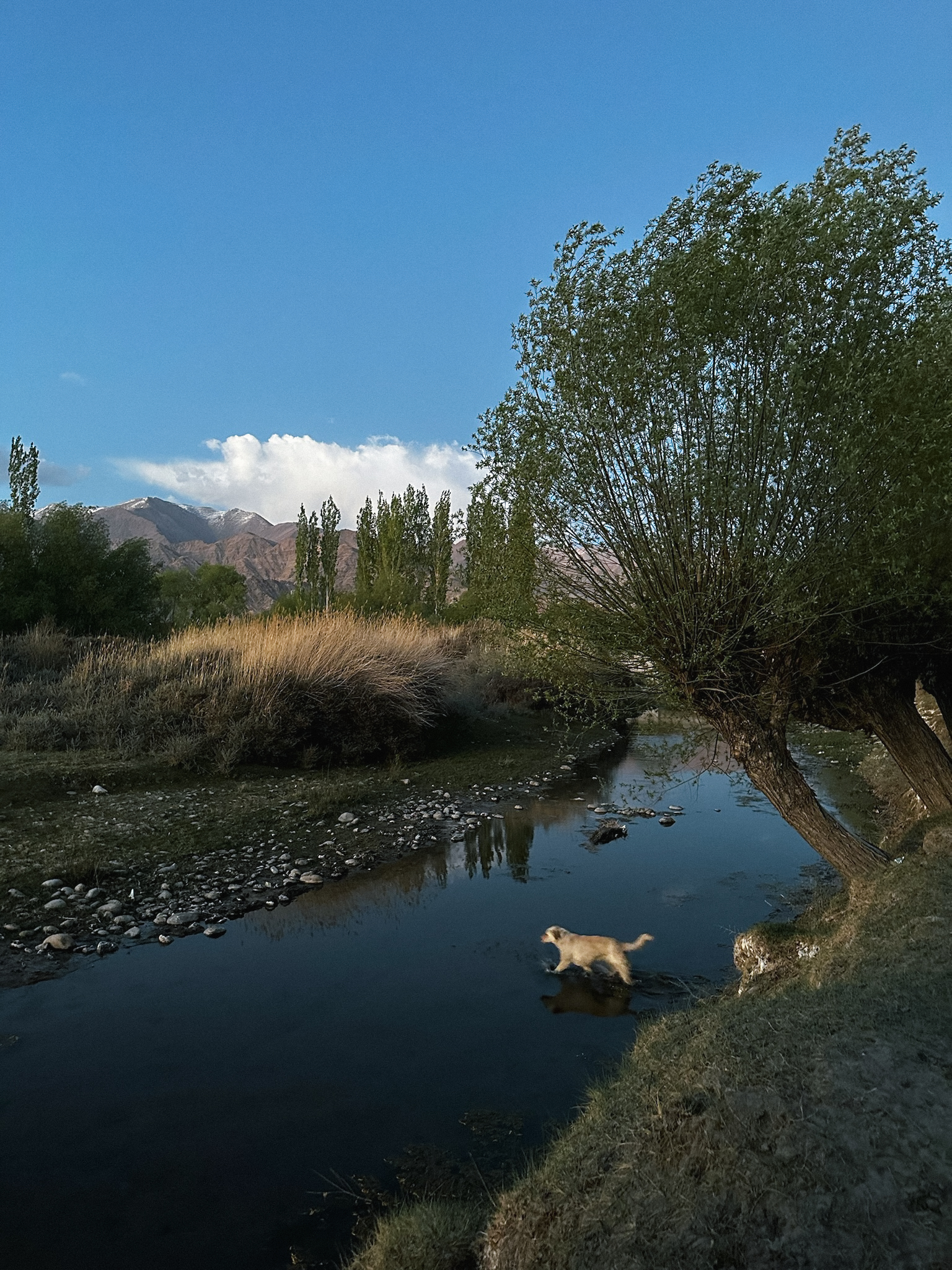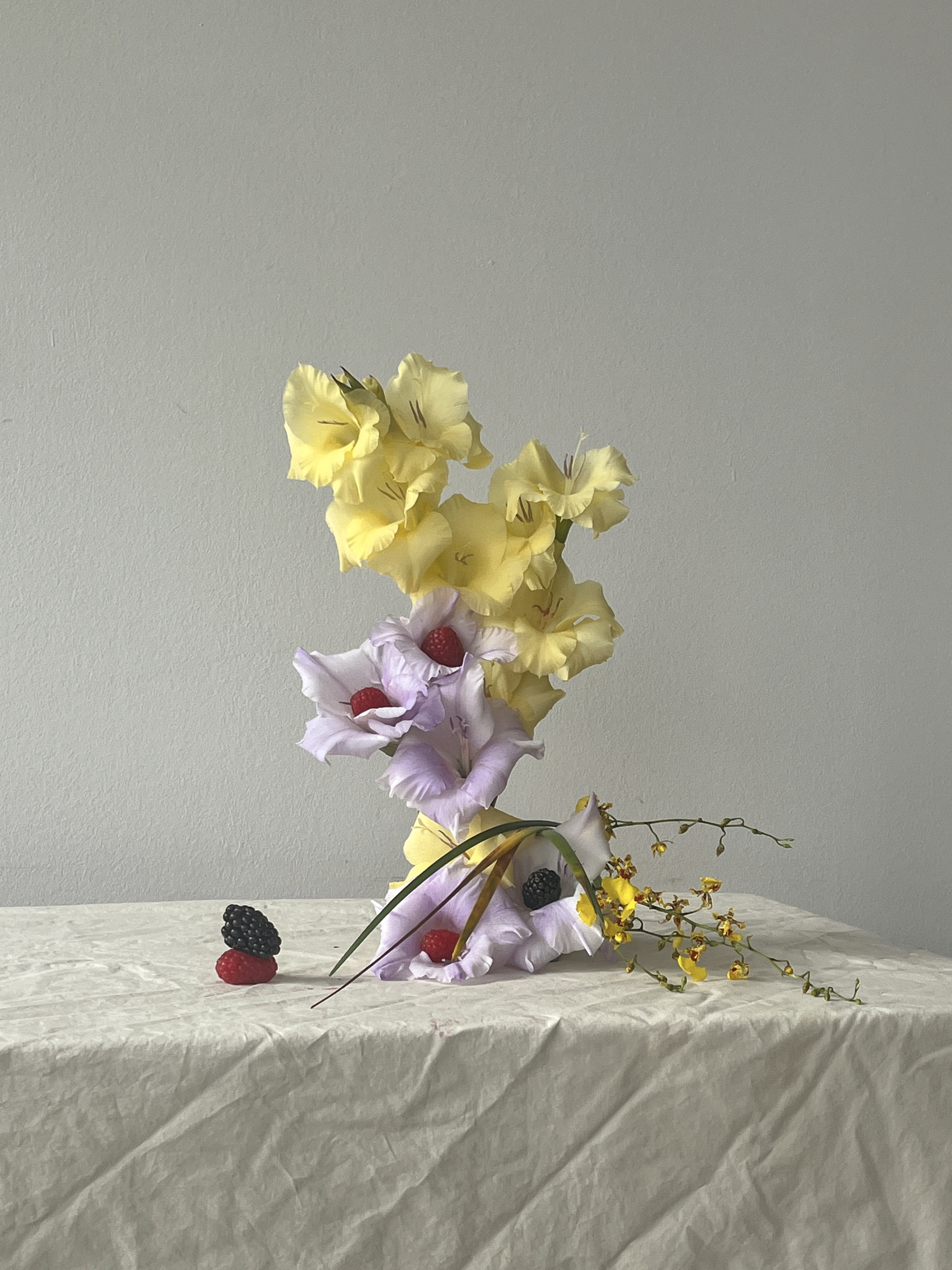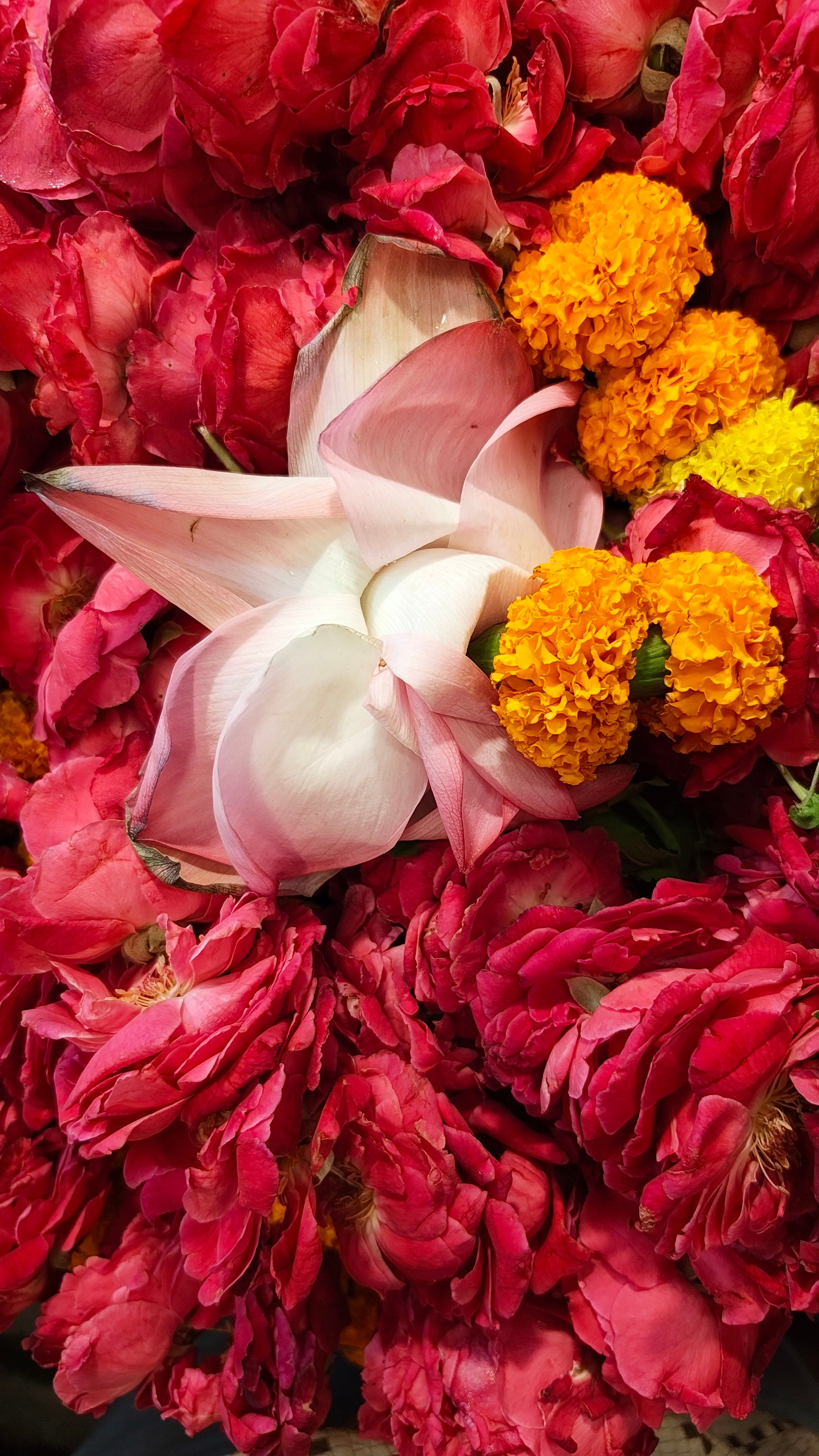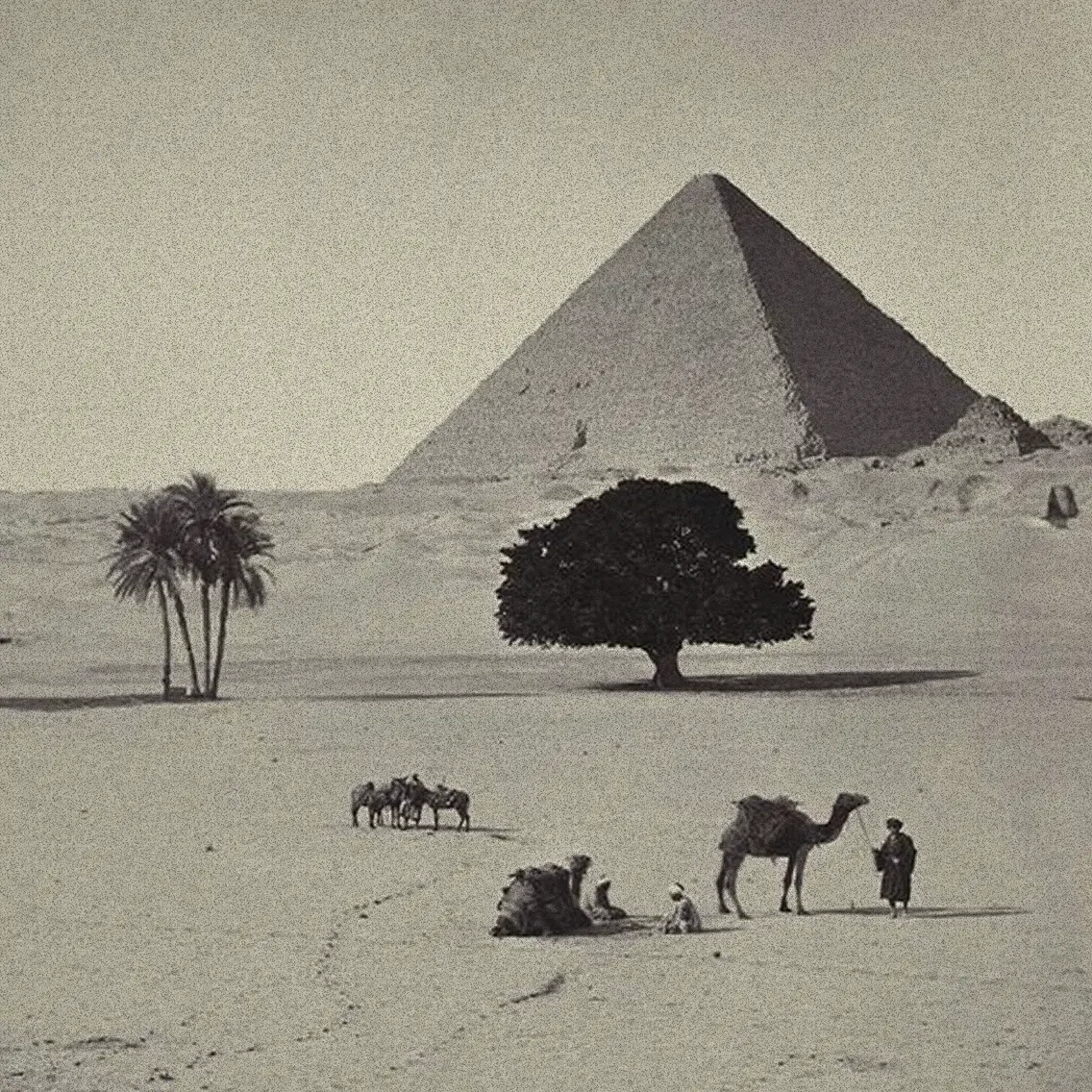I’m drawn to houses as vessels of embedded histories. Not just as structures, but as places where time settles: in the grain of wood,
in the sound of wind passing through,
in the way light moves across a floor.
The smell of leaves.
The sound of a distant bell.
The way silence thickens by afternoon.
Shel, which translates to "mirror", takes its name from the ancient royal capital of Ladakh.
The village was named after the palace, which casts a rippled reflection in the Holy Pond that lies below it.
We walked the winding road to the house, along a river slipping over stones.
A drift of clouds floated across a starlit sky.
Our faces would catch the moonlight - glowing like the tips of the poplars swaying gently in the breeze.
The trees moved like clothes hung out to dry.
I’ve always imagined living by the sea, drawn to the humbling vastness of how small it makes me feel.But somehow, in Ladakh, where scale is so apparent,
I felt more inward than ever and spiritually connected to the land. More awake, maybe. I saw a bird transcend a man-made border. A fox leapt over a petroglyph from an ancient
world.
.svg)




